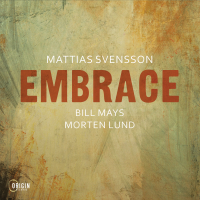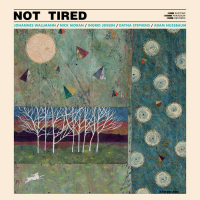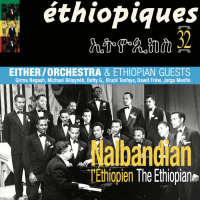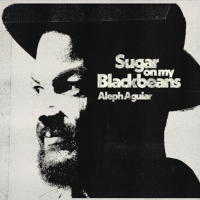Home » Jazz Articles » Album Review » Walter Beasley: Free Your Mind
Walter Beasley: Free Your Mind
Walter Beasley accomplishes both on Free Your Mind. Beasley was a child when his aunt gave him a recording by Grover Washington Jr., a gift that inspired Beasley to learn the saxophone. A graduate from the Berklee College of Music, whose classmates included Branford Marsalis and Rachelle Ferrell, this recording represents Beasley's statement of personal and global reflection.
"Message to Mark" may be the most jazz-like song in this set. Written by Beasley, it features Derek Cannon on trumpet, Craig Shaw on bass, Phil Davis on keyboard and John Roberts on drums. Roberts' subtle cymbal play adds to the track's ethereal qualities. A tribute to the late Mark Ledford, the piece is led by a duet between Beasley and Cannon. The trumpet then delivers an elegant solo, underscored softly by the keys, bass and drums. Beasley also solos. Roberts is emphatic on the toms, cymbals and snare behind Beasley's emotional wail.
"DukeZillia," which has a strong Brazilian flavor, features Roberts, Davis, Raymond McKinley on bass and Rafael Pereira on percussion. Roberts and Beasley add vocals, with Roberts also contributing percussion and Davis contributing drum programming. The song is part tribute to George Duke, whose Brazilian Love Affair (Columbia, 1980) blends jazz, funk, R&B and Brazilian music. This Beasley and Roberts composition is one of several high points of the album. Davis' piano and Beasley's alto sax stand out, as do the percussive efforts of Roberts and Pereira.
Another standout piece is "Barack's Groove," written by Davis. With only Beasley, Davis and guitarist Mark Strowbridge, this laid-back groove honors Barack Obama, the first African-American to be elected president of the United States. Though Davis provides drum programming it's relatively clean, particularly the synthesized rim shots.
Pieces of a Dream leader James K. Lloyd wrote and produced five of the 11 songs. Lloyd is an excellent songwriter and keyboardist, but his programming is the album's weak link and epitomizes a fatal flaw in smooth jazz as a style. The simple act of allowing a drummer like Roberts to sit in on the session can make a big difference between a song that is mediocre and one that sizzles. All that said, Free Your Mind holds up quite well despite Lloyd's influence. Credit Beasley for that.
Track Listing
Steady as She Goes; Love Calls; Oh Yeah; Message to Mark; Shirlitta; Free Your Mind; DukeZillia; Just Breathe; Barack
Personnel
Walter Beasley
saxophoneWalter Beasley: saxophone (1-9, 11), lead vocals (2, 7); Tony Watson Jr.: background saxophone (1, 3, 5, 6, 8); Randall Bowland: guitar (1, 3, 5, 6, 8); James K. Lloyd: keyboards and programming (1, 3, 5, 6, 8); Lynne Fiddmont: lead and background vocals (2); Jeff Lockhart: guitar (2); Webster Roach: bass (2); David Cole: drum programming (2); Walter Barnes: bass (3); Derek Cannon: trumpet (4); Craig Shaw: bass (4); Phil Davis: keyboard (4, 7, 10, 11), drum programming (7, 10, 11); John Roberts: drums (4, 7, 10, 11), background vocals and percussion (7); Raymond McKinley: bass (7); Rafael Pereira: percussion (7); Mark Strowbridge: guitar (9); Sam Sims: bass (10); Rick Watford: guitar (11); Sean Michael Ray: bass (11).
Album information
Title: Free Your Mind | Year Released: 2009 | Record Label: Heads Up International
Tags
PREVIOUS / NEXT
Walter Beasley Concerts
Support All About Jazz
 All About Jazz has been a pillar of jazz since 1995, championing it as an art form and, more importantly, supporting the musicians who make it. Our enduring commitment has made "AAJ" one of the most culturally important websites of its kind, read by hundreds of thousands of fans, musicians and industry figures every month.
All About Jazz has been a pillar of jazz since 1995, championing it as an art form and, more importantly, supporting the musicians who make it. Our enduring commitment has made "AAJ" one of the most culturally important websites of its kind, read by hundreds of thousands of fans, musicians and industry figures every month.






















